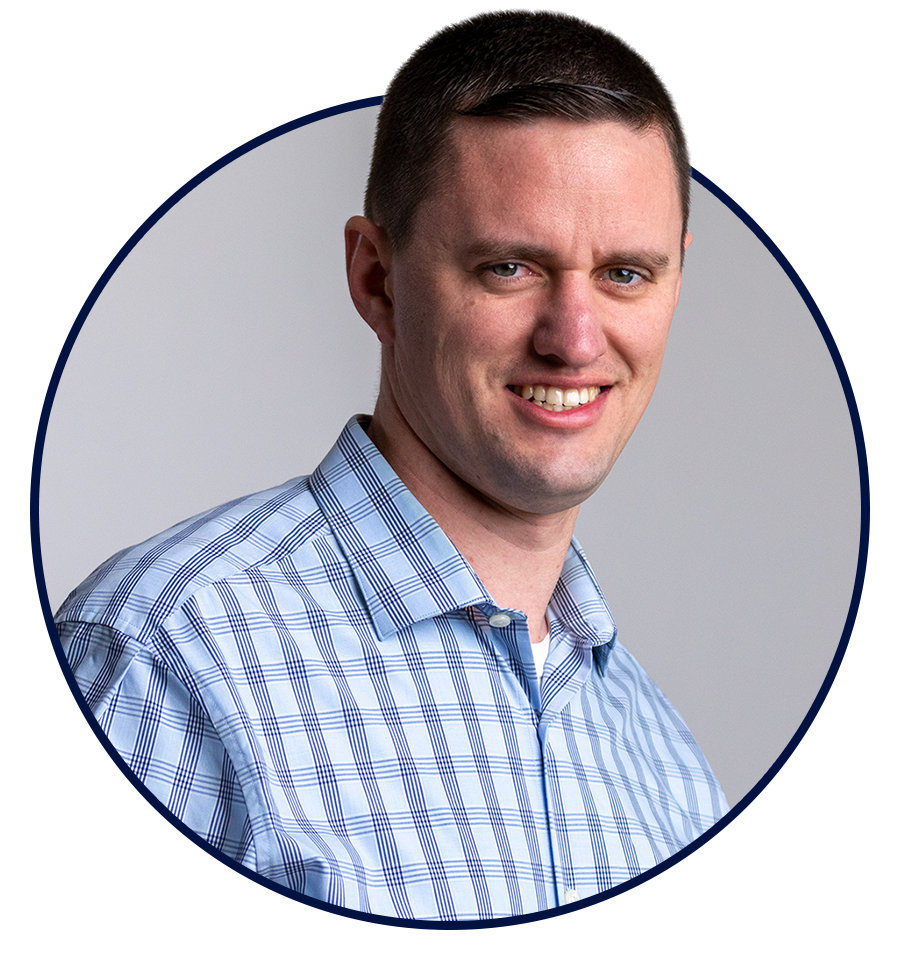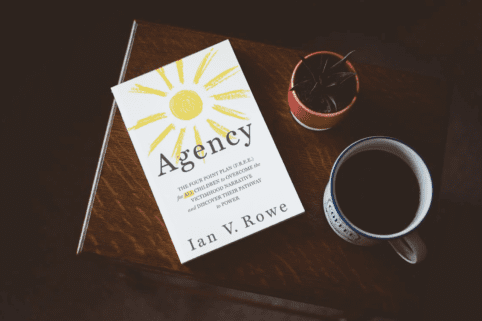A Pathway to Success for America’s Youth: A Synopsis of Agency
 Nathan Mayo
Nathan Mayo
Vice President of Operations & Programs
Read more from Nathan
Listen to this article:
The Purpose of the Book
Agency, by Ian Rowe, focuses on how to give children the best opportunity for a flourishing life. It analyzes two competing visions of success (individual grit vs. systemic redress of inequity) and finds both inadequate. Instead, Rowe charts a middle way that acknowledges the moral will of the individual and the human relationships that shape it (i.e.,family, church, school, and neighborhood).
While not explicitly about poverty alleviation, it’s filled with facts easily translatable to the topic. His analysis is nuanced, intellectually honest, and well-cited; and while his conclusions are framed to empower youth, adults can benefit as well.
The Perspective
Rowe is a second-generation Jamaican immigrant and educator who understands the plight of the poor. He grew up in poverty in inner-city New York and has seen it through the eyes of children he’s taught. Considered an education thought leader, he currently directs a network of innovative charter schools and has worked with the American Enterprise Institute, Teach for America, the Bill and Melinda Gates Foundation, and MTV.
While Rowe implies his personal Christian faith, the book is written for a secular audience and makes a pluralistically faith-friendly case that is not explicitly Biblical.
The Key Points
“Agency” is the missing ingredient in the lives of poor children
Agency is “the force of free will, when it is governed by morally discerned choices (pg. 20).” It isn’t just the ability to act. It’s consciousness of that ability combined with the moral direction that guides it. In other words, you know what you should do and that your actions will make a difference. It may not be sufficient to accomplish everything you want, but it’s necessary to accomplish anything worth achieving.
Rowe contends the political left places too much emphasis on external forces that restrict one’s ability to thrive (i.e., the “blame-the-system” mindset). This perpetuates a victim mentality that condemns its adherents to a life of rage and self-perpetuating despair.
He challenges the political right’s contention that youth in poverty are victims of their choices (i.e., committing crime, having children out of wedlock, dropping out of high school, and the like). He points out that pundits telling them to demonstrate more grit and character are calling for them to draw on reserves of character which they were never granted. Agency is a gift bestowed by loving families and communities. Youth in poverty are not given this gift which explains why young people in poverty make disproportionately poor choices. Although a few find it on their own, the majority never unearth it.
Agency also offers a solution that runs deeper than redistributing economic opportunity. Rowe believes the proper source of agency originates in local institutions that raise a child: family, neighborhood, school, church, and other elements of community life.
The decline of healthy families is a driver and symptom of a lack of agency
Rowe didn’t always believe agency was a critical ingredient to young people’s success. Early in his career, he focused on educational mechanics as a possible path to opportunity.
Two important experiences changed his mind. First, he realized data-driven, billionaire-funded philanthropy failed to improve education outcomes, pointing out that children needed solutions that couldn’t fit into the school day. Second, while running charter schools in a rough Bronx neighborhood, he discovered a mobile DNA testing unit emblazoned with the moniker “Who’s Your Daddy?” The neighborhood’s “ho-hum” acceptance of this service jarred him into realizing that disintegrated family ties made classroom and eventual career success almost impossible.
The book goes on to unpack the alarming trends, causes, and implications of that level of family breakdown. “The research is clear and widely accepted: single parenthood among young adults is one of the strongest predictors of child poverty, school suspensions, incarceration, and educational disadvantage (pg. 88).”
National leaders of many stripes have tried to acknowledge that. Unfortunately, they’ve been booed into silence by “tolerant” elites who eschew any advice that sounds judgemental. Ironically, they practice what they criticize by adopting conventional family structures in their own lives.
On a more encouraging note, Rowe unpacks the success of a national campaign to reduce teen pregnancy initiated by President Clinton. Funded almost entirely by the private sector and fueled by wide media attention, it appeared to make a very sizable dent in the teen pregnancy rate over the next decade. Unfortunately, many teens who delayed pregnancy ended up single mothers by age twenty. So, while the campaign suggested a powerful guiding coalition can affect a deliberate cultural shift, it also showed the inadequacy of not directly addressing non-marital births.
The FREE framework is the key to instilling agency in the next generation
While family is central to the formation of agency, it doesn’t exist in a vacuum. For maximum impact, Rowe outlines four key points of public emphasis that should be promoted at all levels of society. These elements will increase agency in children and give young people their brightest possible future. The elements of the “FREE” acronym are:
Family: Children should be literate about the success sequence (i.e. graduate high school, get a job, get married before children) and the impact it has on one’s economic success. They should understand that while they have no choice about the family they are from, they can control the family they form (two committed parents, then children).
Religion: Religious communities have the power to speak with the moral authority other institutions lack. All levels of government should pay homage to faith leaders and actively include them in public coalitions and conversations. Children should be instructed in their religious traditions and be informed about the positive impact faith has on life outcomes.
Education: Primary and secondary schools should focus on increasing academic achievement with particular attention paid to the gap between each student and proficiency standards for their grade level (rather than gaps between racial groups). For instance, many schools decry the “inequity” of black children who underperform their white counterparts–even though those white students only perform at 40% of grade level. “Raising” black children to 40% proficiency would be a hollow victory because then both groups would be left with 60% of their students below grade level. Rowe advocates bridging the “gap to 100” through national school choice, expanding content-rich curricula, and replacing racial affirmative action with income-based preferences in admission.
Entrepreneurship: Stewardship, initiative, and selfless service are the defining terms of the entrepreneurial spirit. They apply to everyone in the workforce (whether they start a business or not). Thus, they should be taught to all children through entrepreneurial activities like self-reliance and micro-investment clubs.
Details We Love
Ian Rowe shares our desire to revitalize civil society, not only as a way to uplift the poor but to build a flourishing life for all. He challenges left and right-wing reductionism, offering instead complex diagnoses skillfully distilled into a compelling vision for how children should be taught; and concrete ideas for policymakers, philanthropists, and educators. It’s full of innovators’ anecdotes and enough charts and graphs to give you confidence he hasn’t conflated facts with opinion. In short, Agency will significantly enhance your understanding of poverty and its solutions.
Considerations
Depending on one’s faith orientation, some may find it too religious; others may be dissatisfied it doesn’t explore God’s Word enough. By the same token, its bi-partisan challenges may make party loyalists uncomfortable. In the end, we think those tensions make Agency a book worth sharing widely. It stakes its claim to the shrinking territory known as “common ground.”
Who Should Read This?
Agency will be a valued resource for anyone looking for a quick summary of the history and trends among America’s poor. Those working with youth will find its focus on education especially useful. The reader should be aware that while the principles of the FREE framework apply to all levels of intervention, it emphasizes big-picture, national policy solutions rather than micro-interventions to be used by teachers or case managers. Therefore, it’s best suited for those seeking to “zoom out” from their neighborhood to see the bigger picture.
Agency: The Four Point Plan (F.R.E.E.) for ALL Children to Overcome the Victimhood Narrative and Discover Their Pathway to Power can be purchased at Amazon. If you purchase the book through this link, True Charity will earn a small amount as an Amazon Associate.





Leave a Reply
Want to join the discussion?Feel free to contribute!